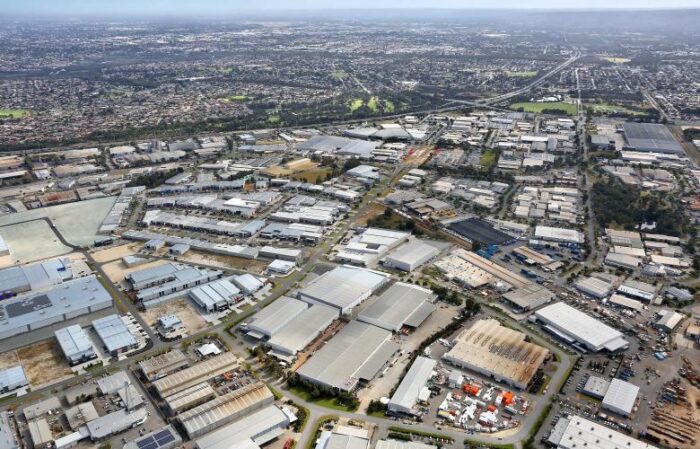Commercial
Want a solid property valuation? Commercial valuers look for these 5 things
Published
14 March, 2023

Commercial real estate contracts are pages and pages long. But there’s one item on both a sale and loan contract that perhaps matters most: the value you place on your asset. It’ll be confirmed by a professional commercial property valuer with an intensive on-site visit, and you’ll want it to align with whatever figure you’ve put on the page.
Much of what a valuer will look for is how well the property is suited for the current and evolving tenancy market. If you’ve followed our blog long enough, you’ll know there’s not many priorities we place above our tenants: If the tenant is happy, secure and relevant to your asset, your commercial property investment is already in line for success. It’s no surprise that valuers look for the same.
Selling your property or refinancing your loan facility? Here are the top 5 things commercial valuers look for when appraising your prized commercial asset.
1. Location

A no brainer, and something that is of course a permanent fixture. You can’t change where your property is located, but you can remind yourself to buy well from the start.
Location is crucial to the success of your property. Not just in the right segment of the right city, but the right part of the street, too.
Take an industrial logistics complex. Huge vehicles drive in all the time, delivering and collecting massive loads. A premises like this will be more valuable to tenants when it is accessible by two streets, so that trucks and heavy vehicles don’t need to make awkward turns on-site to exit the property; they can just drive in and out.
An industrial property like this will also likely be more valuable on paper than one which has restricted accessibility and is poorly located.
Want more Australian commercial real estate news and economic updates? Subscribe to our newsletter.
2. Size and layout

The total net lettable area is another large factor in the final valuation figure. Any space on your premises that your tenant can’t actively use for commercial reasons is dead space. And dead space doesn’t do much for your property’s final valuation.
If your strategy and financial means allow it, consider refreshing unused space so your tenant can get the most out of their premises. In 2019, we purchased a 12,000-sqm industrial asset in Larapinta, QLD. The tenant had only nine months remaining on their lease. We promised to repurpose 1,800sqm of unused land to turn it into additional hardstand. It added $600,000 to the property – and the tenant signed on for another decade. The property value doubled in under two years.
3. Condition
You can’t change the year your property was built. You can change the year it appears it was built.
It’s often overlooked, but even a fresh lick of paint or a newly designed landscape garden can do wonders for your property value. Again, keep the tenant in mind; what would they want to see in a premises? Because the valuer is considering the same thing.

Beyond this, there is nothing more important than a safe and structurally sound property. You must ensure every nut is tightened, every nail hammered and every fixture – from air conditioning units to elevators – is 100% operational and 100% safe.
4. Rental income
The valuer is now studying the paperwork: the WALE, the tenancy schedule, the current rental income and the market trends to determine your property’s rental income potential.
If your current tenant is signed up for another five years but their rental income is far below what the market is paying… then you’re probably in for a nasty surprise when you read the whopping report from the valuer after they’ve made their submission.
But if you’ve executed a lease with a robust tenant, with terms and rent that match or exceed market levels, then it’s another goal kicked for your property valuation.
See how important it is to buy and negotiate well from the start? That’s why so many investors invest alongside us in commercial real estate. Learn more about our commercial property syndicates and unlisted property trusts here.
5. Market demand
You might think you can’t influence the leasing market’s appetite. And you’re right – to a degree. Because what you can influence is the market’s perception of your property.
Producing the most desirable property possible for tenants is what makes successful property investors successful. We can’t stress this enough. The tenant is the lifeblood of the property. And whether there is one occupying the premises today, or there are businesses sniffing around your property’s walls tomorrow, you need to ensure your property meets the tenant market’s demand.
Things like floor plate size, car parking, specialised equipment, vehicle access, storage, end of trip facilities are all included in what the market may look for in a relevant property. Stay up to date with market trends and ensure you’re meeting tenant demand. It’ll do wonders for your property valuation.
When looking for a strong commercial property valuation, it’s not so much about what you can do now. But what you’ve done in the months or years before the valuation that counts. Buy well, negotiate strongly, install a tenant your property deserves, and the valuation figure you want will most likely come.
For more information on how to invest alongside a successful commercial property syndicator, get in touch with us today.
Want more Australian commercial real estate news and economic updates? Subscribe to our newsletter.



